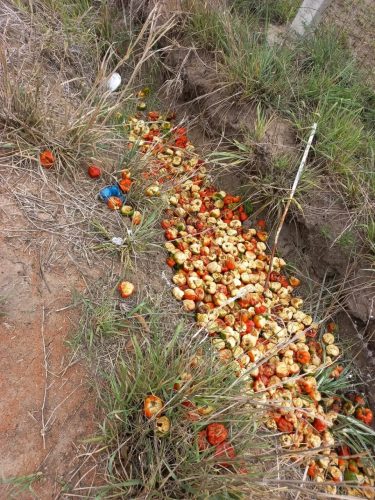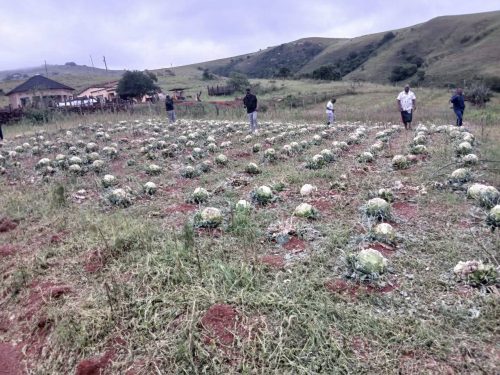BY SIKHULILE DLAMINI
MANZINI – The widening gap between Eswatini’s farmers and financial institutions is threatening to derail the country’s ambitions of building a robust, market-driven agricultural economy.
That was the central message at a recent agribusiness funding seminar hosted by Swati Fresh, where farmers—young and old, seasoned and aspiring—gathered to demand urgent reforms in how agricultural finance is designed and delivered.
“This is more than a seminar—it’s a wake-up call,” said Zanele Fakudze, Chairperson of Swati Fresh. “We’re not just here to talk. We’re here to break the barriers that keep farmers locked out of the financial system.”
A System Stacked Against Smallholders
Despite the availability of financing schemes such as the Eswatini Agriculture Development Fund (EADF)—which offers low-interest loans and financial literacy support—many farmers say these programs remain out of reach.
“The requirements are just not realistic,” said Boysen Magongo, Secretary General of the Eswatini National Farmers Association. “Collateral? Audited financials? These are luxuries most small-scale farmers can’t afford.”
Across the room, farmer after farmer described a funding landscape that feels complex, rigid, and misaligned with their day-to-day realities. Several attendees admitted they’ve never even tried to apply, simply because they had no idea where to begin.
“This is my first time learning about funding options,” said Ntsiki Nhlabatsi, a smallholder farmer. “It’s clear that knowledge is power—but we need more than workshops. We need practical, accessible pathways to finance.”
Young Agripreneurs Face Steep Climb
For young graduates like Phumelele Shongwe, the barriers are even higher.
“Even at 9% interest, the EADF loan rate is too high for someone just starting out,” said Shongwe, who recently graduated from Luyengo. “We’re eager to farm and contribute to food security, but the system seems designed for established commercial players—not us.”
Swati Fresh, operating as a farmer market consortium, is working to close that gap. The organization brings together cooperatives and farmer groups to enhance access to markets, improve produce quality, and raise farm-level profits. But even they acknowledge that the solution must extend beyond market access to financial inclusion at scale.
Financiers Present—But Are They Listening?
Presentations were delivered by Eswatini Bank, EADF, and the Centre for Financial Inclusion (CFI)—represented by Bongkhosi Tfwala and Xolile Magagula, respectively—highlighting funding opportunities and application processes. However, many participants walked away feeling that the disconnect had only been reinforced.
“What you show us in presentations sounds good on paper, but it doesn’t work on the ground,” said one frustrated attendee. “For the average farmer, these processes are too long, too complicated, and out of reach.”
Some suggested that the EADF consider grant funding or blended finance models tailored to emerging farmers—particularly youth, women, and rural communities. Such reforms would align Eswatini with international best practices in inclusive agricultural finance.
Government Efforts: Commendable, But Not Sufficient
Minister of Agriculture Mandla Tshawuke, speaking at a separate event, highlighted EADF’s recent disbursements and introduced the upcoming Smallholder Agricultural Productivity Enhancement and Marketing Project (SAPEMP)—an E851 million initiative backed by IFAD and the Green Climate Fund.
He also recently engaged with the Eswatini National Rural Farmers Association, whose members shared the everyday challenges of accessing loans or grants. The association urged the government to design funding models that reflect the real-world conditions of smallholder farming.
Time for a National Reset
Eswatini’s agricultural sector remains dominated by smallholder and subsistence farmers with limited integration into formal markets. If left unaddressed, the financing gap could stifle efforts to boost local food production and reduce dependency on imports.
“Our vision is for farmers to access reliable markets—but this cannot happen without financial empowerment,” said Fakudze.
What’s needed now is a coordinated, cross-sector response:
- Financial institutions must redesign products with flexibility and inclusivity at the core.
- Government must simplify processes and scale outreach.
- Development agencies should invest in farmer education, blended finance, and mentorship.
- Farmers’ platforms like Swati Fresh must continue to amplify grassroots voices and scale innovative models.
If Eswatini is serious about food security, rural development, and economic resilience, bridging the divide between farmers and financiers must become a national priority.



